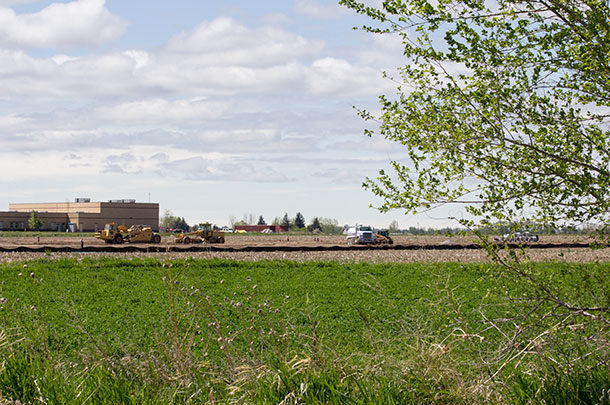While I may have missed the holiday by a couple of weeks, I do think it is worthy of mention. I know Earth Day has been hijacked by so-called environmental activists and has a negative image for those of us in farming and ranching.
I would propose to you that Earth Day should be one of our biggest holidays in the realm of agriculture. I have long said that no occupation is more concerned about the environment than those of us who make our living growing food and fiber. We are the world’s best environmentalists, and we should be proud of it and take ownership of the title. We have utilized technology to employ techniques such as no-till. We have installed buffer strips, terraces and other structures that protect our soil and water.
Increasingly, it seems as though we are under attack about not doing enough to protect our water, soil and air. I suppose we could always be doing more, but it does seem as though we are going above and beyond to protect the natural resources entrusted to our care. Our farms and ranchlands have been the focus of conservation efforts, but recently I have wondered if our focus maybe should shift in a different direction.
I am blessed (or cursed) to live in one of the areas with the fastest population growth rate in our state. Economic development is a good thing, but it does make me wonder. One of my daughter Tatum’s best friends lives in a new subdivision, and recently when I went to pick her up at her friend’s house, a thought hit me. The subdivision was built on very marginal farm ground. More often than not it did not produce a crop; the land was too sandy, and the crops either burned up from a lack of moisture or probably did not produce enough to cover the cost of planting them even in a good year. When the housing development started going up, I thought it was a good place to grow houses. It probably still is, but a couple of things occurred to me.
First, we turned very marginal dry land, crop acres, into highly irrigated grasslands. Every lawn that I saw had several sprinklers going on newly seeded lawns. I wonder how many acre-feet of water we are committing to the perfect lawn. How many gallons of water are we using now that were not used before? Second, how much more fertilizer is being used on those acres in an attempt to get that grass growing? I will guarantee it is more than any of us in farming would put on them, especially grass acres.
I also noticed quite a bit of erosion from the newly built houses. Much of it was because the soil was disturbed and did not have any vegetative cover to protect it. Previously, the fields had been terraced and the soil loss was much less. Some of this current soil loss is because the runoff is much greater. Hard surfaces such as roofs, driveways and patios do not soak the precipitation up like the farmland that had once been there.
Finally, I saw many pets running in the neighborhoods or in outdoor kennels. There is no way to put this delicately, but they do defecate, and it does have to go somewhere. Most often I would imagine it washes away with the rain, down the drainages and out into our creeks, rivers and other watersheds. I know your dog isn’t very big, but it all adds up.
Am I saying the housing development is a bad thing? No, development is a touchy subject, but I think most of us would agree that in the long run, it is good for the economy. Am I trying to pit us against our urban cousins? Absolutely not, the last thing we need is to get in a debate over who should do more. We will lose that debate because of sheer numbers (well, we will lose until they all get hungry). What I am saying is that we need to look at this issue with the same lens we look at ag lands.
In the end analysis, we all have a lot at stake in the preservation of our air, soil and water. It is something we as ag producers do a great job of and should take great pride in. This is what I propose: Next year we should celebrate Earth Day by helping everyone understand that they can do their part to help protect the resources we all share. After all, we are in this together. ![]()
Glenn Brunkow is a farmer and rancher from the Northern Flint Hills of Kansas and a former county extension agent.
PHOTO: Urban sprawl encroaches ever further into agricultural lands. Photo by Lynn Jaynes.











